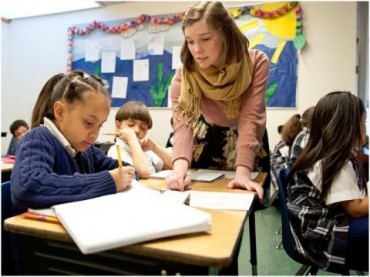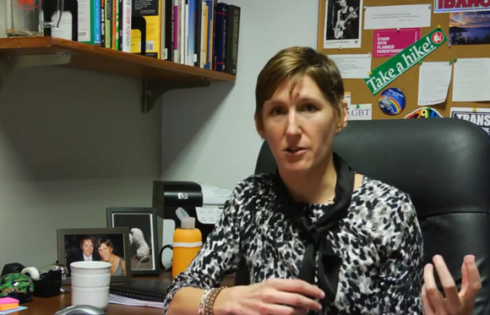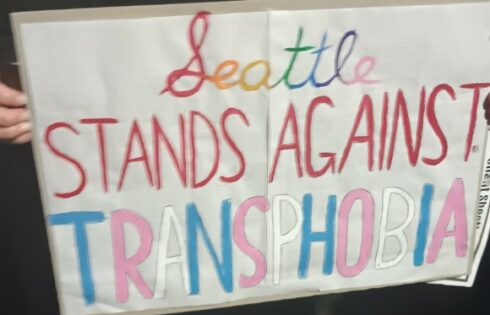
I had to slightly shake my head and let out a brief chuckle when I read Joanne Jacobs’ post on college schools of education. Titled “Learning to reflect, but not teach,” it refers to Boston middle school teacher Peter Sipe’s piece in the Boston Herald, and it perfectly encapsulates much of my own experience, both as an undergrad and graduate student.
. . . a professor would speak for a bit on some theoretical matter, then we’d break into small groups to discuss it for an extravagantly long time, then we’d get back into a big group and share our opinions some more. I remember a class one evening in which you could not speak unless you had been tossed an inflatable ball. My wife’s classes did not go like this.
Sipes’ wife was in medical school.
Two of the courses I had to take as an undergrad were “Historical Foundations of Education” and “Psychological Foundations of Education.” Both were completely useless for what those planning to go into teaching actually need. The former was basically a history course about education in the United States. To be completely honest, watching paint dry would have been more exciting … not to mention at least as useful.
As an undergrad I also took a course called “Educational Psychology” and later as a graduate a class titled “Psychology of Teaching.” Maybe there was a substantive difference between the two, but I certainly don’t remember any. I do know that not very much from these courses was actually handy in the classroom.
The absolute worst education-related class I took was “Language Development in the Classroom.” To this day I haven’t the slightest notion of what this (graduate) class was supposed to be about. Every time we met the prof (a sixty or seventy-something year-old woman who was certainly nice enough) would pretty much ramble about what was on her mind at the time, and then we’d get into groups to discuss … something.
One time, in one of my grad classes, I sort of attempted to call our professor’s bluff. She had asked the class for one-word, yes, reflections about an article we were supposed to have read the previous evening. This wasn’t checking our knowledge of the material, you see, but more the prowess of our vocabulary. Many of the terms offered up by my classmates were ridiculously repetitive (“Thoughtful.” “Provoking.” “Engaging.”), but nevertheless the prof excitedly wrote each one down on the chalkboard.
Having had enough, I turned to a teaching colleague of mine who was also a student in the class, and whispered, “Watch this.” I then raised my hand. When called upon, I offered the term “good.” That’s right, just the generically vanilla word “good.” The prof repeated “Good!” and enthusiastically put it on the chalkboard.
My colleague couldn’t contain her laughter and had to leave the room for a few minutes.
This sort of nonsense is what way too many ed courses include, unfortunately, just as Mr. Sipe notes in his article. And I’d bet good money that most teachers would concur, to a very large degree.
I’d be remiss if I did not mention the courses that were beneficial for educators. The curriculum planning course prior to student teaching was incredibly practical for constructing units, lessons, and activities. (I believe this course was so because the professor was what you might call “old school”). “Measurement Applications in Education,” a grad course, taught teachers how to properly create assessments — even down to how exam questions appeared on the paper.
Once I became an employed educator, the vast majority of what I learned — and used — in the classroom was garnered from other, mostly veteran, teachers. If education schools want to be truly practical, keep the courses like those I noted, and cut (or make optional), classes like “Historical Foundations.” Expand the time undergrads actually spend in schools observing and teaching with an experienced instructor. (I’ve learned that in recent years my alma mater has implemented much of that last recommendation; student teachers’ time and duties in their placement schools have expanded quite a bit.)
“Learning by doing,” the saying goes, right?
Dave Huber is an assistant editor of The College Fix. He has been involved in education for twenty-five years. You can follow him on Twitter @ColossusRhodey.
Like The College Fix on Facebook / Follow us on Twitter
IMAGE: Merrimack College School of Education/Flickr







Please join the conversation about our stories on Facebook, Twitter, Instagram, Reddit, MeWe, Rumble, Gab, Minds and Gettr.